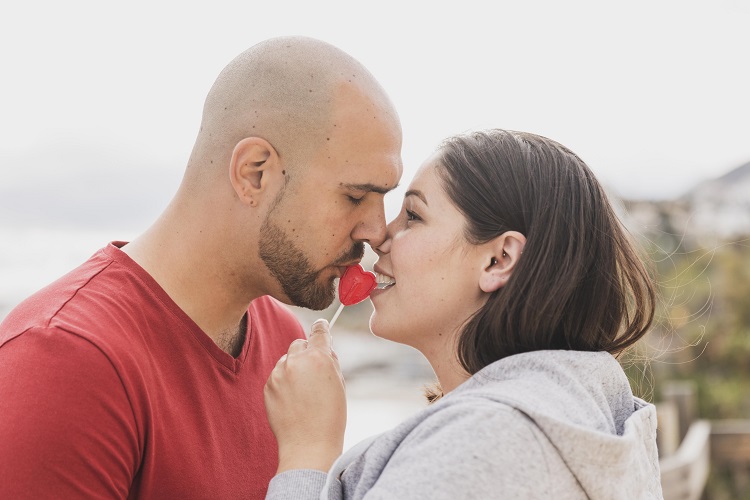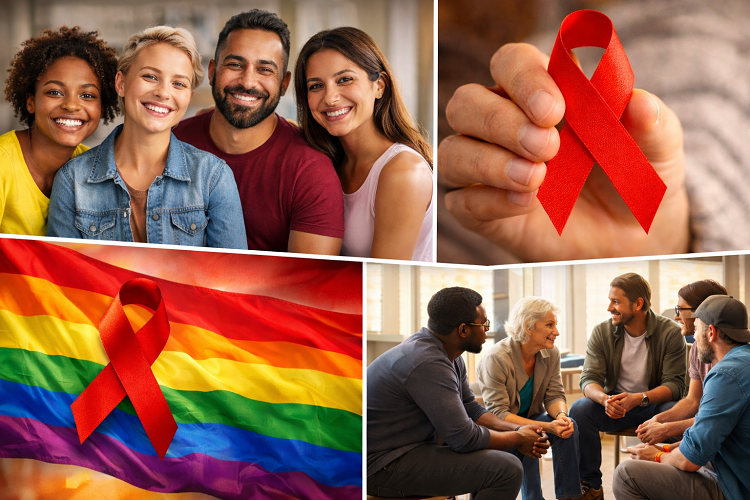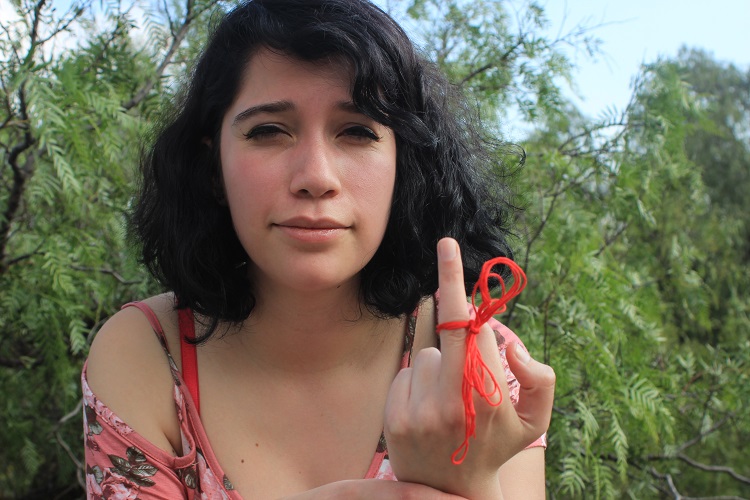When it comes to HIV transmission, one of the most frequently asked questions is: “Can I Get HIV From Tongue Kissing?” The fear surrounding saliva, open mouths, and intimacy often gives rise to myths, especially in a world where sexual education is limited or stigmatized. With so many rumors and misunderstandings floating around, it’s no wonder people feel confused.
This blog post explores the real HIV risk from tongue kissing—not just from a clinical standpoint but with real-life understanding. By combining medical insight and human perspective, we aim to answer whether the fear is valid or simply rooted in myth. If you’re worried about getting HIV through kissing, you’re not alone—and you’re not wrong to ask.
Understanding HIV Transmission: The Science Behind It
HIV (Human Immunodeficiency Virus) is a virus that weakens the immune system by targeting CD4 cells (T-cells). Left untreated, it can develop into AIDS (Acquired Immunodeficiency Syndrome). For transmission to occur, certain conditions must be met: access to the bloodstream, a high enough viral load, and the presence of HIV in body fluids like blood, semen, vaginal fluids, rectal fluids, and breast milk.
Importantly, saliva is not considered a fluid that carries enough virus to transmit HIV. While HIV has been detected in saliva, the quantities are extremely low and not capable of causing infection. The enzymes in saliva, such as lysozyme and peroxidase, actually help break down the virus. Therefore, under typical circumstances, tongue kissing or “deep kissing” is not a route of HIV transmission.
That said, there are always exceptions in science, which leads us to examine specific conditions under which the risk could theoretically exist.
Deep Kissing with Blood: Is There Any HIV Risk?
While regular kissing poses virtually no risk of HIV, the scenario changes slightly if there is blood present in the mouth—either from bleeding gums, sores, cuts, or oral ulcers. If both partners have compromised oral health and there is an exchange of blood, the situation could potentially lead to transmission. However, even this is considered extremely rare.
The Centers for Disease Control and Prevention (CDC) mentions one documented case of HIV possibly linked to deep kissing involving significant bleeding, but again, this was an unusual case. Most experts agree that while the risk isn’t zero, it’s so low that it’s not considered a public health concern.
In simple terms: tongue kissing someone with HIV—even with mild gum issues—is still unlikely to transmit the virus, but if both partners have open wounds, it’s better to be cautious.
HIV Kissing Myth Still Exists
Despite medical reassurance, many people still fear contracting HIV from kissing. This fear stems from misinformation, lack of sex education, and the lingering stigma surrounding HIV-positive individuals. In many parts of the world, people with HIV are still treated with suspicion, making conversations about intimacy even more difficult.
Additionally, when people search “can you get HIV from kissing?” online, the vague or outdated results can make things worse. Social media, unverified blog posts, and community myths fuel unnecessary anxiety. That’s why humanizing this conversation is so essential—not everyone can decipher complex medical jargon, and fear doesn’t respond well to statistics alone.
This blog aims to create a safe space for accurate, digestible information. Because ultimately, education—not fear—is what protects us.
Expert Opinions: What Medical Professionals Say
Medical professionals across the globe, including organizations like UNAIDS and WHO, confirm that HIV is not spread through kissing, hugging, sharing utensils, or casual contact. Saliva simply doesn’t carry enough virus to cause infection, and kissing—while intimate—is not inherently dangerous.
Dr. Anthony Fauci, one of the most trusted figures in infectious diseases, has stated that casual kissing poses “no risk” of HIV transmission. Similarly, dentists and oral health experts support this view, noting that unless someone is experiencing active bleeding in the mouth, there is little to no concern even during deep kissing.
The World Health Organization (WHO) has gone as far as to label the risk from kissing as negligible, emphasizing the need to focus on real routes of transmission—like unprotected sex, sharing needles, or contaminated blood products.
Addressing Real-Life Concerns and Mental Health Impact
For many, the fear of contracting HIV through kissing isn’t about facts—it’s about anxiety. If someone you’re dating reveals they’re HIV-positive, you may instinctively feel worried—even if you’ve educated yourself. That’s normal. It’s important to acknowledge those emotions while also reminding yourself of the science-based reality.
Unfortunately, the emotional burden of HIV-related fears often leads people to avoid intimacy altogether. Some even end relationships due to misunderstandings about transmission. That’s why we must look beyond just the science and also validate the mental health implications of HIV stigma.
By understanding what actually puts you at risk—and what doesn’t—you can navigate relationships with more confidence and less fear. Communication, education, and empathy are your best tools.
Kissing and HIV-Positive Partners: Navigating Intimacy
If your partner is HIV-positive and you’re HIV-negative, intimacy may feel complicated. However, thanks to antiretroviral therapy (ART), HIV-positive individuals can reach undetectable viral loads, meaning the virus cannot be transmitted—even through sex.
This is known as U=U (Undetectable = Untransmittable) and is widely supported by global health authorities. If kissing is your concern, know that even without ART, the risk from kissing is practically zero. Still, being open about your health status, maintaining good oral hygiene, and understanding your partner’s treatment plan can go a long way in building trust.
It’s also a good idea to speak to a healthcare provider or HIV counselor if you need personalized advice or support while dating someone with HIV.
Should You Avoid Kissing If You Have Mouth Sores?
While we’ve emphasized that tongue kissing carries negligible HIV risk, you should still be cautious if you or your partner have mouth ulcers, bleeding gums, or cold sores. Not just because of HIV, but also due to the possibility of other infections like herpes (HSV), syphilis, or cytomegalovirus (CMV).
Good oral hygiene is key—not just for preventing infections, but also for staying safe during intimate acts. If you’re recovering from dental work, have active bleeding, or any other oral issue, it’s better to avoid deep kissing until fully healed.
The bottom line? HIV isn’t the primary concern with kissing—but good health practices always matter.
Myths Busted: What Doesn’t Spread HIV
Let’s put this plainly—here’s what does NOT transmit HIV:
- Kissing (even deep kissing with tongue, unless there’s blood)
- Sharing food or drinks
- Hugging or shaking hands
- Using public restrooms
- Coughing or sneezing
- Swimming in public pools
- Mosquito bites
It’s time we separate fact from fear and focus on how HIV really spreads—through unprotected sexual activity, blood transfusions, shared needles, and mother-to-child during childbirth or breastfeeding.
How to Talk About HIV and Kissing in Relationships
It can feel awkward to talk about HIV with a partner, especially if the conversation involves kissing, oral health, or past exposure. But honesty, when delivered with empathy, can deepen intimacy. If you’re HIV-negative and curious about your partner’s status—or vice versa—ask gently and without judgment.
For those living with HIV, disclosing your status doesn’t have to mean disclosing every medical detail. A simple, respectful conversation can go a long way in reducing stigma and building trust. And if you’re both unsure, getting tested together can be a great bonding step.
Remember, love and safety can coexist.
HIV Prevention Tips for Intimacy and Kissing
Here are some tips to ease your mind and make intimacy safer:
- Maintain oral hygiene: Avoid deep kissing if you or your partner have cuts, sores, or bleeding gums.
- Communicate openly: Share your status and ask your partner about theirs.
- Stay informed: Keep up with updates from credible sources like the CDC, WHO, and AIDS.gov.
- Support U=U: Encourage treatment and testing. Undetectable = Untransmittable.
- Be kind to yourself: Fear is natural. Education helps replace it with empowerment.
Final Verdict: Myth or Fact?
So, is HIV risk from tongue kissing a myth or fact?
Answer: It’s a myth.
Unless both individuals have significant open wounds in their mouths and there’s a major exchange of blood, tongue kissing does not transmit HIV. The fear may be real, but the risk is not. With the right information and a little compassion, we can eliminate the stigma that surrounds HIV and enjoy our relationships with confidence and care.
Conclusion: Moving Beyond Fear with Knowledge
In today’s world, where conversations around Sex and HIV are still shadowed by fear, understanding the reality of transmission is empowering. Kissing is a fundamental human expression of love and connection. No one should be afraid to show affection because of misinformation.
By confronting myths with facts and offering guidance in a humanized tone, we can create a more informed, compassionate, and less judgmental society. And that starts with asking questions like: Can you get HIV from tongue kissing? Now you know—you can’t.




